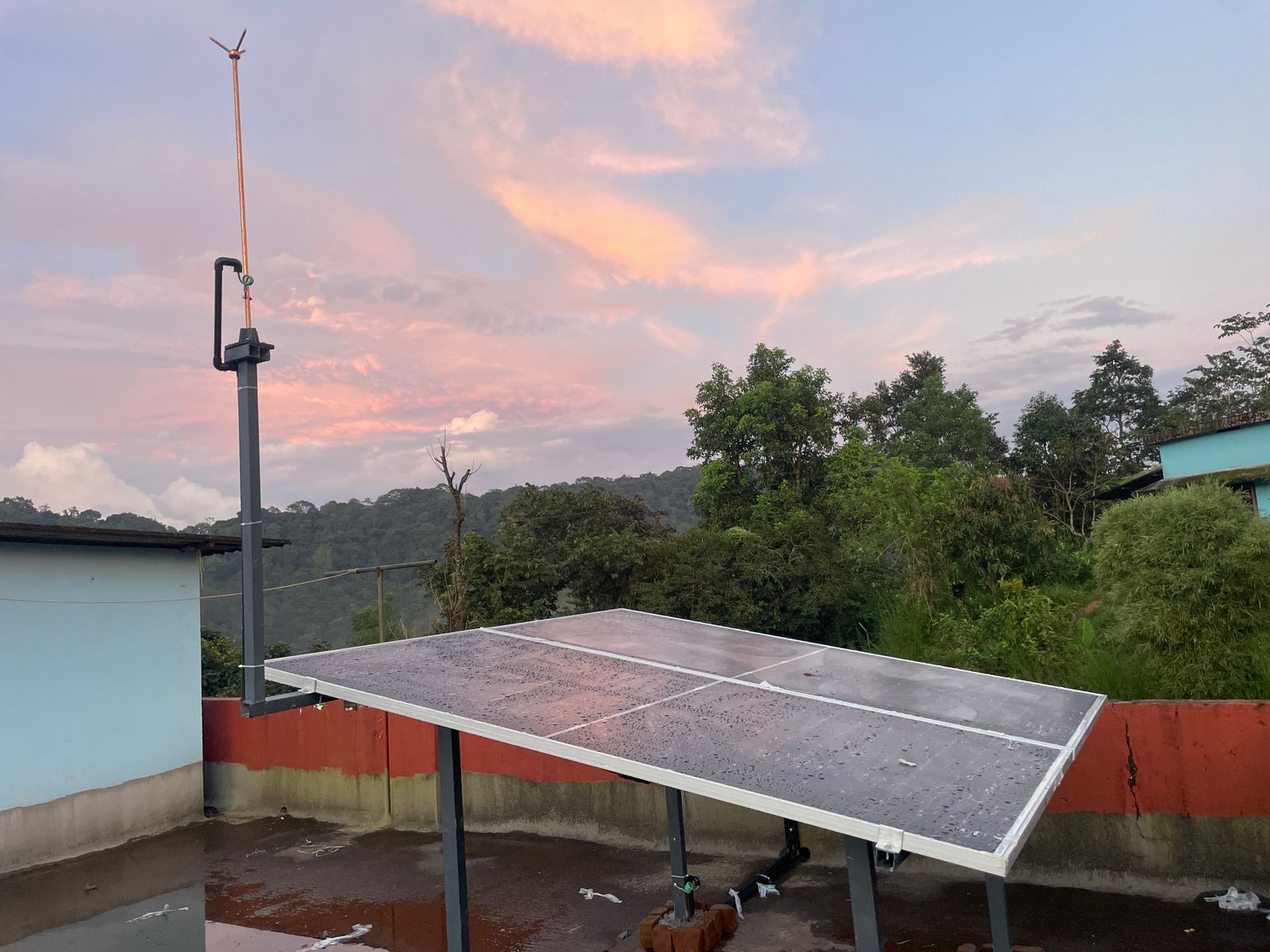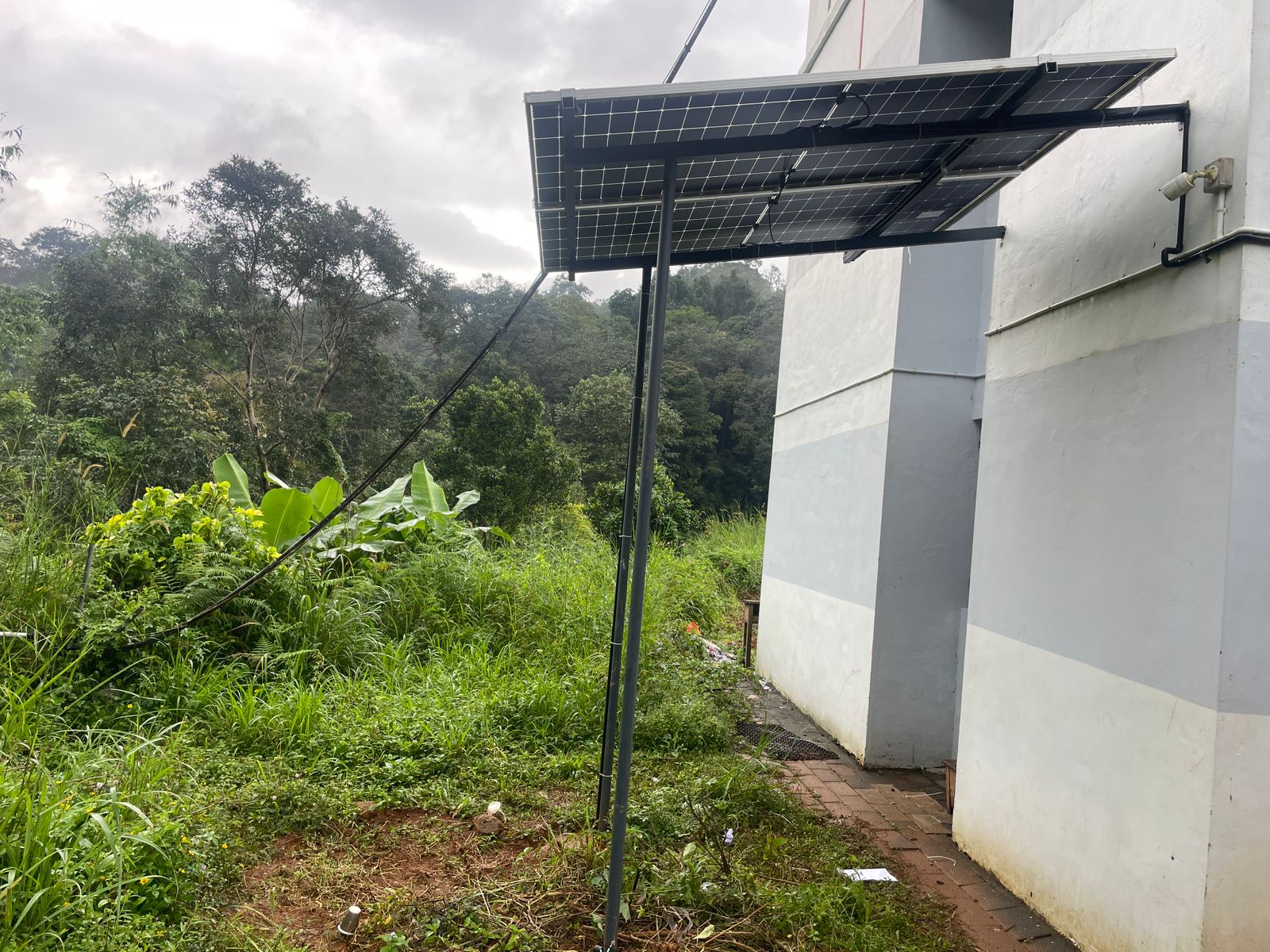Focus Solar And Home Solutions
Focus Solar And Home Solutions, Thalassery Road, Near KSEB, Panoor, Kannur, 670692
Since : 2019
Focus Solar And Home Solutions, Thalassery Road, Near KSEB, Panoor, Kannur, 670692
Since : 2019
Biogas installation services in Kannur offer eco-friendly, cost-effective, and sustainable solutions for energy generation through organic waste. This renewable energy source harnesses organic material like food waste, agricultural residue, and even animal waste to produce biogas, which can be used for cooking, heating, or generating electricity. Biogas installations play a crucial role in reducing dependency on fossil fuels, lowering greenhouse gas emissions, and promoting environmental sustainability.
The demand for renewable energy options has grown significantly across Kerala, with Kannur seeing a rise in the adoption of biogas systems due to their efficiency, low maintenance, and environmental benefits. The installation of biogas systems is particularly beneficial for residential, commercial, and agricultural sectors in Kannur, where there is ample organic waste available for conversion into biogas. These services are crucial for those seeking an alternative to traditional power sources and are committed to reducing their carbon footprint.
Biogas installation services involve setting up systems that convert organic waste into biogas through the process of anaerobic digestion. This involves the decomposition of organic materials in a controlled environment, resulting in the production of methane-rich biogas. The installation service includes setting up the necessary infrastructure such as biogas plants, tanks, digesters, pipelines, and other components required for a complete biogas system.
A typical biogas system is composed of a digester, where the organic waste is broken down in an oxygen-free environment, and a gas storage unit that collects the produced biogas. These services are essential for businesses, households, and industries aiming to adopt cleaner energy solutions that reduce reliance on conventional power sources and contribute to a more sustainable future.
Biogas systems for residential purposes are becoming increasingly popular. They offer a renewable energy solution for households to reduce dependence on conventional energy sources like LPG or electricity. The primary advantage of installing biogas systems for homes is the reduction in monthly utility bills, particularly for cooking fuel. Additionally, the by-product, bio-slurry, can be used as an excellent organic fertilizer for gardens and farms, enhancing the productivity of household gardens and reducing the need for chemical fertilizers.
Renewable Energy Source: Biogas is produced from organic waste such as food scraps, agricultural residues, and sewage. By utilizing these materials, households can generate renewable energy for cooking, heating, or even electricity production.
Waste Management: Installing a biogas system helps in managing organic waste efficiently. Instead of sending kitchen waste and other organic materials to landfills, they can be converted into useful energy and organic fertilizer.
Reduction of Greenhouse Gas Emissions: By using biogas as a fuel source instead of traditional fossil fuels like LPG, households can significantly reduce their carbon footprint. Biogas production also helps in capturing methane, a potent greenhouse gas that would otherwise escape into the atmosphere from landfills.
Cost Savings: Once installed, a biogas system can significantly reduce energy costs by providing free, sustainable fuel for cooking and heating. Over time, the savings can offset the initial installation cost.
Improved Soil Fertility: The byproduct of biogas production, known as digestate, can be used as organic fertilizer for gardens or agricultural purposes. It enhances soil fertility, improving crop yields without the need for chemical fertilizers.
Energy Independence: With a biogas system, households can reduce their dependence on grid electricity or purchased gas. This makes the household more energy-independent, especially in areas with unstable power supply.
Environmentally Friendly: Biogas production is a clean energy process that doesn’t pollute the environment. It reduces the reliance on non-renewable resources and contributes to sustainable living practices.
Support for Local Ecosystems: When used appropriately, biogas systems can help reduce deforestation (by lowering the need for firewood) and prevent soil and water pollution by reducing reliance on chemical fertilizers.
Economic Opportunities: By turning waste into energy, biogas can create new economic opportunities. Households can even sell excess biogas or its byproducts to nearby farms or industries that may need them.
Long-Term Sustainability: Biogas systems, when maintained properly, can operate for many years. This ensures long-term sustainability for energy production and waste management within the home.
Our Commercial Biogas Installation Services offer sustainable, efficient, and eco-friendly solutions for businesses looking to reduce waste and energy costs while promoting environmental responsibility. Whether you're in the food processing industry, agriculture, hospitality, or any other sector with high organic waste, we provide expert services to install biogas systems tailored to your needs.
Customized Solutions: We design biogas systems to suit the scale and requirements of your business. Whether you need a small or large-scale installation, our team will recommend the best system based on your waste generation and energy needs.
Waste-to-Energy Conversion: Biogas systems convert organic waste (such as food waste, agricultural residues, and livestock manure) into renewable energy, helping your business reduce reliance on external power sources.
Environmental Benefits: By implementing biogas systems, businesses can significantly reduce their carbon footprint, promote sustainable waste management practices, and meet regulatory environmental standards.
Cost Savings: With biogas installation, you can save on waste disposal fees, reduce energy consumption costs, and potentially earn from selling excess energy back to the grid (in some regions).
Turnkey Services: From initial consultation and design to installation, commissioning, and ongoing maintenance, we offer complete biogas solutions. Our experts ensure seamless implementation and operation.
Expert Maintenance and Support: Our services include regular monitoring and maintenance to ensure the optimal performance of your biogas system.
Biogas systems offer a sustainable, efficient, and environmentally friendly solution for agricultural operations. By converting organic waste into renewable energy, biogas can greatly benefit farms, livestock operations, and agricultural processing units. Below are the key agricultural applications of biogas installation:
Biogas systems help manage livestock manure by converting it into energy. Animal waste, such as cow dung, poultry litter, and pig manure, can be used as feedstock for biogas plants. This process:
Biogas plants provide a reliable and renewable energy source for agricultural operations. The generated biogas can be used to:
The digestate produced from biogas systems is a nutrient-rich, organic fertilizer that can be used to improve soil health. This reduces the need for synthetic fertilizers and promotes sustainable farming practices. The benefits include:
Agricultural processing industries, such as dairy, fruit, vegetable, and meat processing, generate large amounts of organic waste. Biogas systems can effectively process this waste, converting it into renewable energy while reducing the environmental impact. This includes:
Biogas can be used to generate electricity, providing reliable and affordable power to rural agricultural communities that may not have access to a stable electricity grid. Benefits include:
Poultry and swine farms produce large amounts of waste that, when not managed properly, can lead to serious environmental pollution. Biogas systems can:
The use of organic fertilizer from biogas digestate enhances soil health, promoting more sustainable crop production. This reduces the need for chemical fertilizers and supports the growth of healthier crops.
Agricultural operations are often a significant source of greenhouse gases. Biogas technology helps mitigate emissions by:
Agricultural wastewater, which may contain nutrients and organic matter, can be treated in biogas systems, converting the waste into biogas while removing harmful substances from water. This helps:
Biogas systems are essential for producing renewable energy through organic waste decomposition. Proper maintenance and support are crucial for their optimal functioning and longevity. Here’s an overview of key aspects of biogas system maintenance:
Regular inspections should be performed to identify any mechanical or operational issues. Checking for leaks in the gas collection system and ensuring that the digester's walls and seals are intact is vital to avoid energy loss.
Regular cleaning of the system components such as pipes, filters, and gas collection tanks is necessary to prevent blockages and maintain the flow of biogas. Sludge removal and cleaning the waste input sections should be part of the routine maintenance.
Monitoring the quality and quantity of the biogas produced is essential for ensuring that the system operates efficiently. This includes checking for any variations in methane concentration and adjusting the system if needed.
The biogas production process is sensitive to temperature and pH levels. Regular monitoring ensures that the digester operates within the optimal range, as improper conditions can slow down the digestion process.
Ensure that all moving parts such as pumps, mixers, and valves are lubricated and functioning properly to avoid breakdowns. Checking the gas storage system and pressure relief valves will also prevent accidents and ensure continuous operations.
In case of issues such as low gas production or system breakdown, a professional support team is crucial for troubleshooting. This may involve identifying system imbalances, replacing faulty parts, or adjusting the waste feed rate to restore optimal performance.
As technology evolves, upgrading the biogas system with newer, more efficient components can improve overall performance. This could include integrating automated systems for gas flow regulation, data logging for monitoring, or advanced waste treatment technologies.
Regular checks for safety compliance with environmental and local regulations are essential to ensure that the biogas system remains compliant and safe to operate. These checks can help prevent accidents and ensure the system adheres to waste disposal and emissions standards.
1. What is biogas, and how is it produced? Biogas is a renewable energy source produced through the anaerobic digestion of organic materials, such as food waste, agricultural waste, livestock manure, and sewage. The process occurs in an oxygen-free environment, where microorganisms break down the organic matter to produce methane, carbon dioxide, and other gases.
2. What are the benefits of installing a biogas system?
3. What types of waste can be used in a biogas system? Biogas systems can process a variety of organic materials, including:
4. How large does my biogas system need to be? The size of the biogas system depends on the amount of organic waste your business or facility generates. During the consultation process, a professional service provider will assess your waste input, energy needs, and space requirements to recommend an appropriate system size.
5. How much energy can a biogas system produce? The amount of energy produced by a biogas system depends on the volume and type of waste being processed. A well-designed system can generate enough energy to power farm operations, heating systems, or even provide electricity to the grid, offering substantial savings and potential income generation.
6. What is the installation process like? The installation of a biogas system typically involves:
7. How long does it take to install a biogas system? The installation timeline varies depending on the system's complexity and size. On average, a commercial biogas system may take anywhere from a few weeks to several months to be fully installed and operational. Your service provider will give you an estimated timeline after an initial assessment.

Kannur, Panoor

Kannur, Panoor